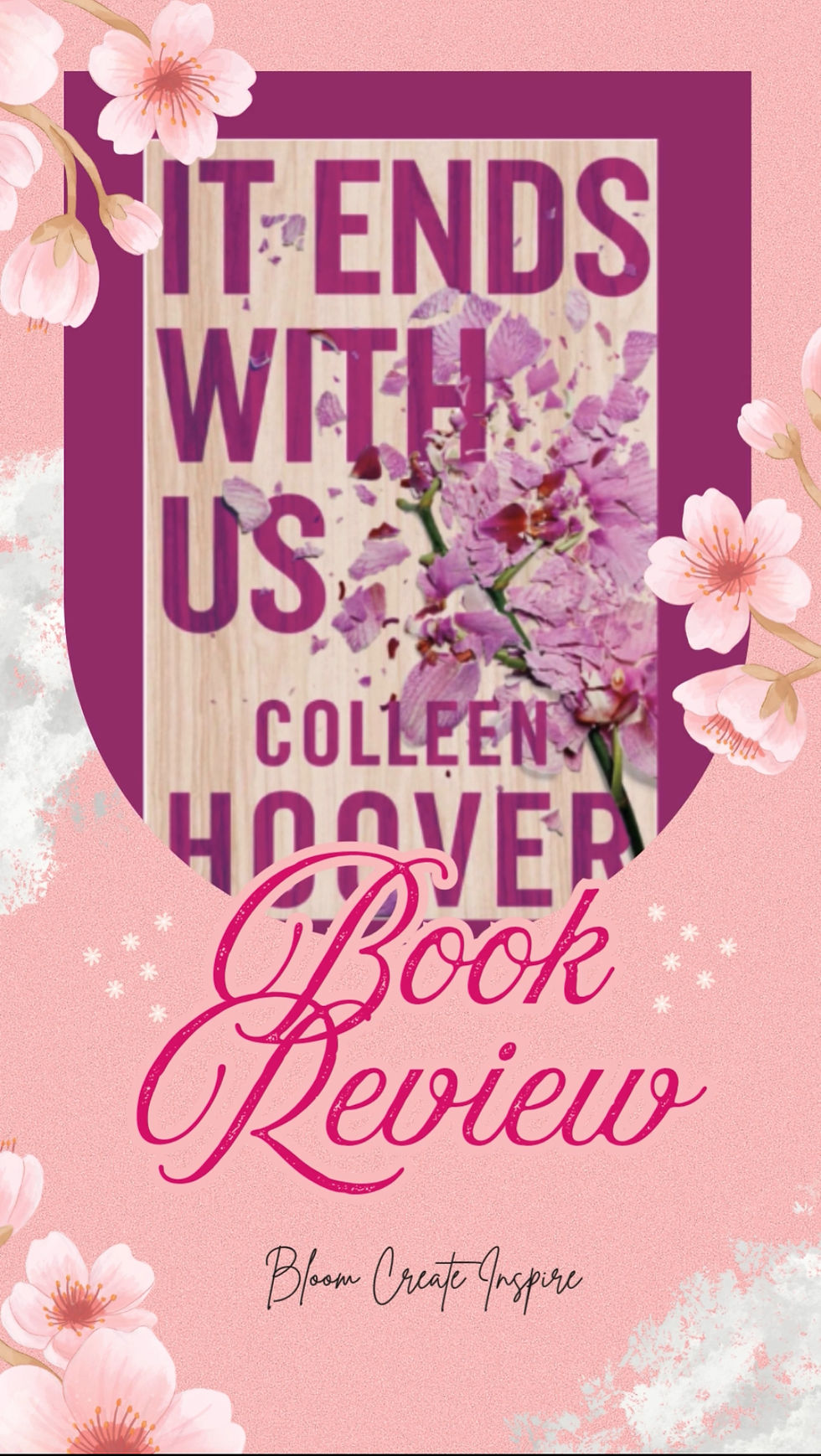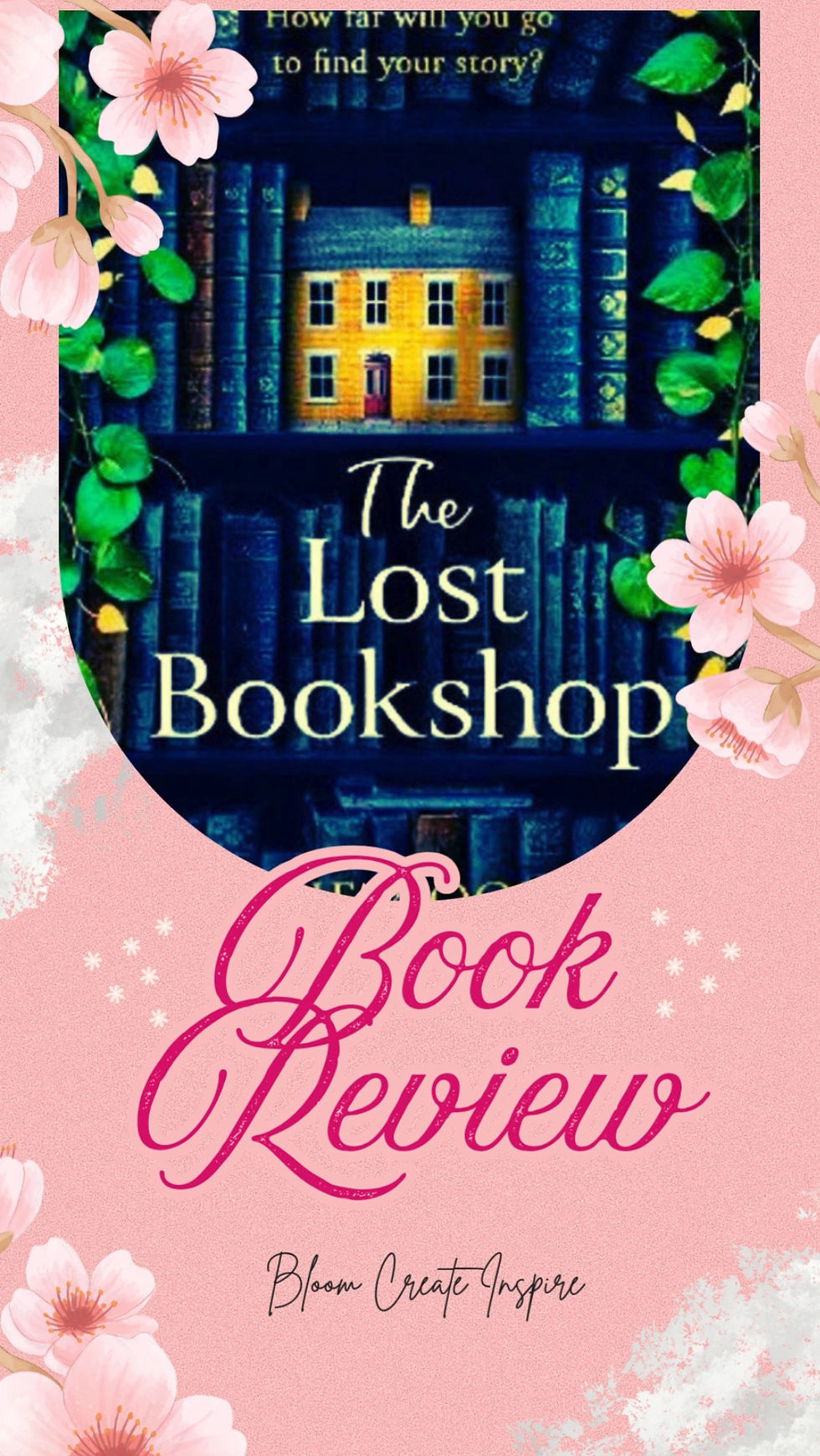Book Review: Trauma and Judgment in "It Ends With Us"
- bloomcreateinspire
- Feb 6, 2025
- 3 min read
Updated: Sep 5, 2025

"In the past, I’ve always said I write for entertainment purposes only. I don’t write to educate, persuade, or inform. This book is different. This was not entertainment for me. It was the most grueling thing I have ever written." Colleen Hoover
It Ends With Us is a poignant reminder that not everything is always, if ever, as it seems on the surface. For me, the overarching themes, other than the obvious, are that of trauma and judgment. Right from the start, when you dive into this book, it becomes evident that there is so much more to people than what appears on the surface and that it is never ever okay to judge anyone solely based on their outward appearance. Trauma is another major theme; it comes in all forms and is woven into the fiber of every society. Its tentacles are far-reaching, and its effects are extricated in often devastating ways for both the perpetrator and the victim.
Colleen, through Lily Bloom, scrupulously and authentically navigates the treacherous waters of domestic violence and spousal abuse. Although uncomfortable to witness as the reader, I can appreciate her raw and honest portrayal of how domestic violence often slowly creeps into the relationship before quickly progressing as time goes on. In hindsight, I appreciate the discomfort even more knowing how personal this experience is to the author herself and realizing this novel was a passion project, an outlet of sorts, and not altogether an entertainment piece. I think it’s important to highlight and impress upon the point that everyone is going to deal with the same or similar traumatic situations in different ways, much like the characters in It Ends With Us.
In all honesty, the character of Lily’s mom reminds me of previous generations who did their utmost best to keep up appearances for others and pretended everything was okay—the sweep-things-under-the-rug generation. Instead of speaking up and breaking the cycle of abuse at the hands of her esteemed politician husband, Lily's mom makes the difficult choice to keep her family together in favour of her abuser's reputation and also her daughter's security. As a mom myself, I understand and sympathize that for her, as it was for many women in generations gone by, it's the best way she knows how to deal with the situation at the time. Of course, this decision traumatizes Lily, who, as a young girl, is forced to grow up in such a volatile and confusing environment.
Everyone deals with their trauma differently. While Lily grew into a strong oak tree, Ryle perhaps needed more pruning and watering growing up (both references from the book). One thing remains certain: everyone comes out on the other side of traumatic experiences a different person from who they were before. It either makes you stronger or breaks you. Broken, however, does not mean irrevocably irreparable, and that's where I believe many of us falter in our judgment against the abuser. However, the brutal and heartbreaking reality is that for people who have lived a life of unimaginable trauma and abuse for too long, it is extremely difficult to break the habit, and in It Ends With Us, this is Lilly and Ryle's reality.
Towards the end of the novel, the theme becomes extremely somber. As is human nature, I hope against hope that Ryle magically (without any professional help and within the space of only 300 pages) changes from a jealous, raging abuser back to the prince charming we met on the rooftop during the first couple of pages of the book. But alas, life, even in fictional romance novels, doesn't work that way, it seems. Even Colleen admits in the end notes that there were many times she was tempted to change the plot line so Ryle's character wouldn't become the person he turned out to be, however that story wouldn't be true to the one the author intended to share with the world, and it sure wouldn't honour her momma's superhuman strength. Ultimately, this beautiful story succeeds in teaching us many lessons. My overall impression of IEWU is that of a cautionary tale, that life isn't just black and white, and it often knocks you off your feet by kicking you right behind the knees when you least expect it and from the people you least expect it from. The choices we make in those defining moments of complete and utter defeat set the course for the trajectory the rest of our lives will take.



Comments